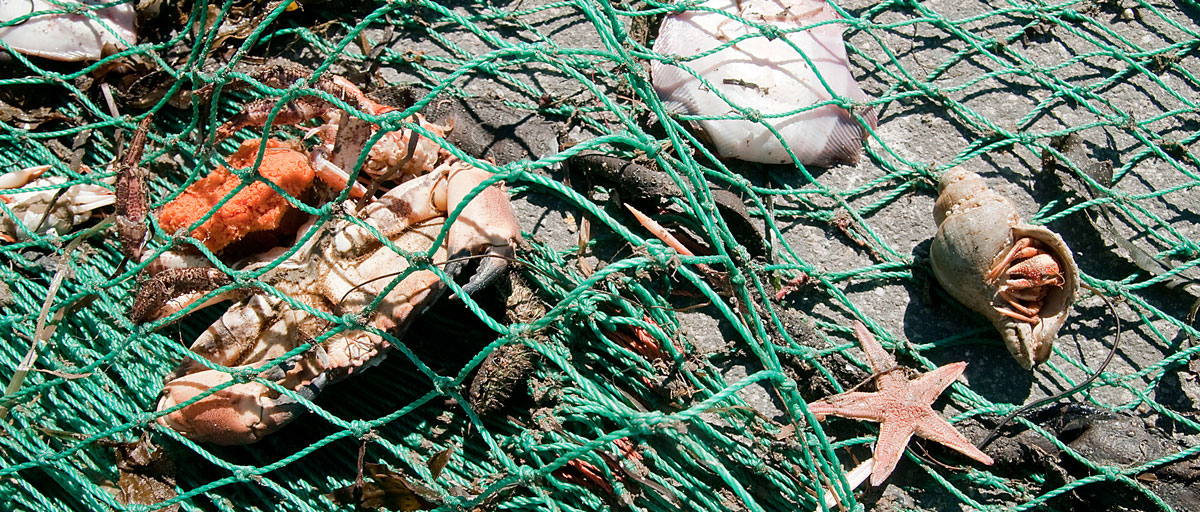
Bottom trawling is one of the most controversial fishing methods that exist - a TLab taking place in October will aim to develop new less destructive methods in a collaborative hackathon setting. Photo: T. Dahlin/Azote
TLab
Solving for x = sustainable fisheries
An upcoming hackathon will focus on ways of finding more sustainable fishing methods
Bottom trawling is among the most controversial fishing methods that exist. Scientific reports show that it is linked to high by-catch rates, extensive fuel use, and damage to the seafloor.
While the seafood industry is making progress on turning their operations around towards sustainability, there is still a need to build critical mass within the industry and beyond to further develop new fishing techniques with lower or minimal impact on the ocean environment.
To address this a Danish fish processor, Espersen A/S, has teamed up with the Global Economic Dynamics and the Biosphere Program (GEDB) at the Royal Swedish Academy of Sciences, to run a creative workshop (a Transformations Lab). It is a curated creative tech session designed to develop a prototype for a new disruptive gear technology for more sustainable fishing.
This 'Fish-Hack' will bring together thinkers from within and outside of fisheries to envisage what the elements of a new, less destructive and more selective trawl might be and what criteria such a gear must fill in order to also be 'disruptive' to the social system – i.e. to be scalable in such a way that the innovation can create broader system change.
Creative collaboration
Global Economic Dynamics and the Biosphere Program (GEDB) at the Royal Swedish Academy of Sciences, is a research program dedicated to understanding economic dynamics of global change and its implications for a sustainable future. The program has been engaging with seafood industry actors to help identify and solve sustainability challenges linked to seafood production.
Espersen is an international industry actor with documented leadership in facilitating Marine Stewardship Council certification of the Baltic cod stocks.
Together they have enlisted the help of Another Tomorrow – a group of experts in hacking problems and creating prototypes to curate the creative session (the 'Fish-Hack').
In addition to providing the platform for the creative process around the new disruptive gear, GEDB will study how the process of innovation and implementation (and potential transformation) unfolds.
How will fishers, the ecosystem, and industry needs ultimately be met? Will this innovation ever make it to the sea? What are the barriers for implementation across industry and institutional actors?
Transformations 2015
The 'Fish-Hack' Transformation Lab (TLab) will run in conjunction with the Transformations 2015 conference on October 5-7, 2015. TLabs are spaces for joint experimentation, with a carefully designed and facilitated process, to create a series of prototype solutions to complex problems. These prototypes could be new business models, services, or governance forms that fundamentally change human-environmental interactions and contribute to large-scale changes for a better future.
The aim of the conference is to build a better understanding of large-scale systemic changes and fundamental redirections in people-planet relationships that can have an impact at scales that match the challenges of the Anthropocene. Information from the fish-hack process will be fed back into the conference along with other TLabs that will be run prior to the conference.
For more information about the hack, please contact Tracy van Holt or Beatrice Crona
related content
Tracy van Holt's research focuses on the social and behavioral dynamics or interactions of natural resource-dependent communities under different configurations of landscape and seascape change, market dynamics and spatial features.
Beatrice Crona has conducted extensive research on the role of social networks in natural resource governance and the role of boundary-bridging organizations for adaptive governance.






